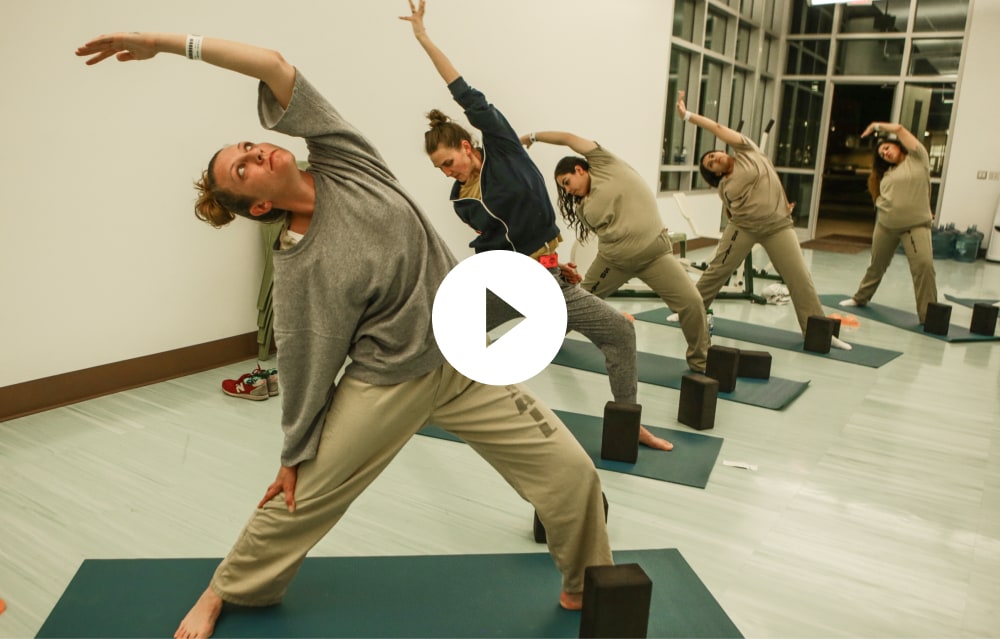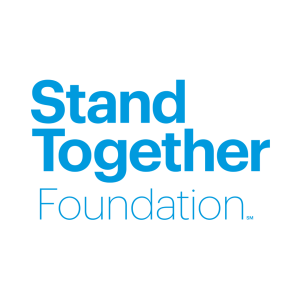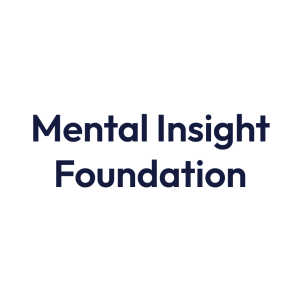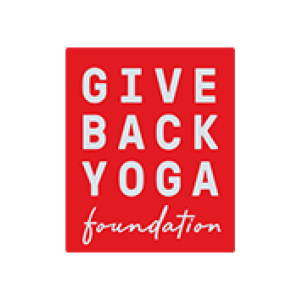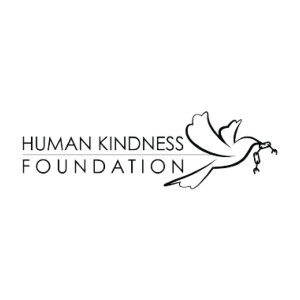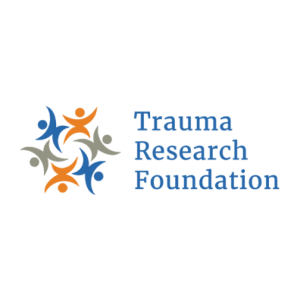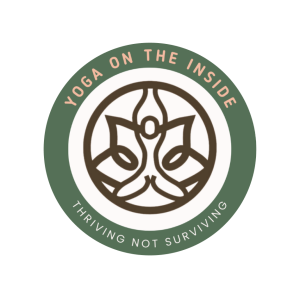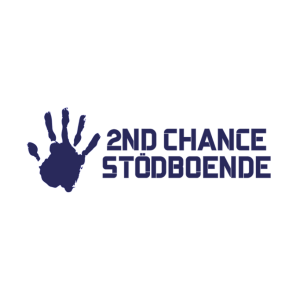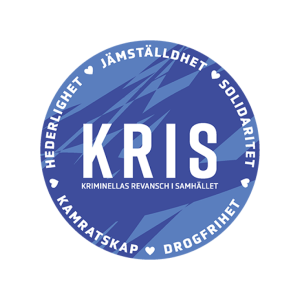The prison yoga projectSupporting system-impacted people around the world through yoga & mindfulness since 2002
PYP was founded by James Fox at San Quentin Prison where he and fellow facilitators have been teaching trauma-informed yoga and mindfulness classes to people impacted by incarceration since 2002.
Our programs are grounded in evidence-based trauma-informed yoga and embodied mindfulness practices, equipping individuals with the essential tools for self-regulation, self-discovery, and personal growth.

Mission
Our mission is to provide programs for rehabilitation and resilience rooted in yoga and embodied mindfulness.
Vision
We envision a cultural-shift toward a healing-centered approach to addressing crime, substance use disorder, and mental health disorders.
Safety
Inclusivity
Equity
We recognize that people face different challenges and experience different privileges due to social, economic, and racial disparities. By striving for equity, we aim to level the playing field, reduce inequalities, and provide equitable access to healing resources and opportunities for all.
Mindfulness
We believe in mindfulness practices to cultivate self-awareness, compassion, and emotional well-being. Mindfulness enhances our ability to regulate emotions and reduce stress. It supports developing healthier coping strategies, increasing self-compassion, and responding to challenging situations with clarity and resilience.
Empowerment
Empowerment fosters a sense of agency, self-confidence, and self-efficacy. It enables individuals to recognize their own strengths, set and achieve goals, and envision a positive future. People who are empowered take charge of their lives, make positive choices, and contribute to their communities in a way that aligns with their values and needs.
Integrity
We believe in acting with honesty, transparency, and consistency, ensuring that our words align with our deeds. Living the value of integrity requires holding ourselves accountable, acknowledging our mistakes, accepting responsibility, and accepting the consequences of our actions.
Continuous Learning
We believe in ongoing learning, growth, and staying informed. Continuous learning allows us to adapt and improve, ensuring we remain effective, evidence-based, and responsive to conditions. It encourages personal and professional development, promotes innovation, and strengthens our organization’s capacity to effect positive change.
Understanding Punitive Justice
Punitive Justice places the offender at the center of the process, seeking only punishment for a crime. This traditional approach focuses on retribution rather than rehabilitation or community healing. The primary goal is to impose penalties that serve as a deterrent to crime, often resulting in incarceration, fines, or other forms of punishment.
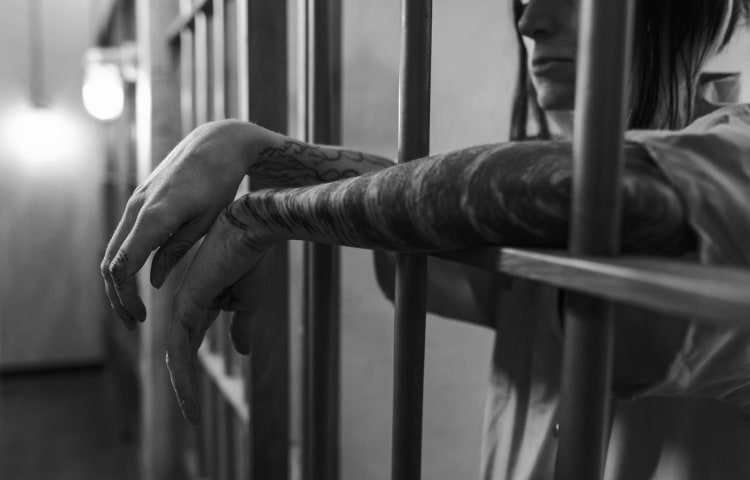
Punitive Justice emphasizes the following principles:
Retribution
Punishment is imposed as a form of vengeance for the wrongdoing.
Deterrence
The aim is to deter the offender and others from committing future crimes through fear of punishment.
Incapacitation
Removing the offender from society to prevent further harm.
Retributive Justice
A theory that justifies punishment as a morally appropriate response to crime.
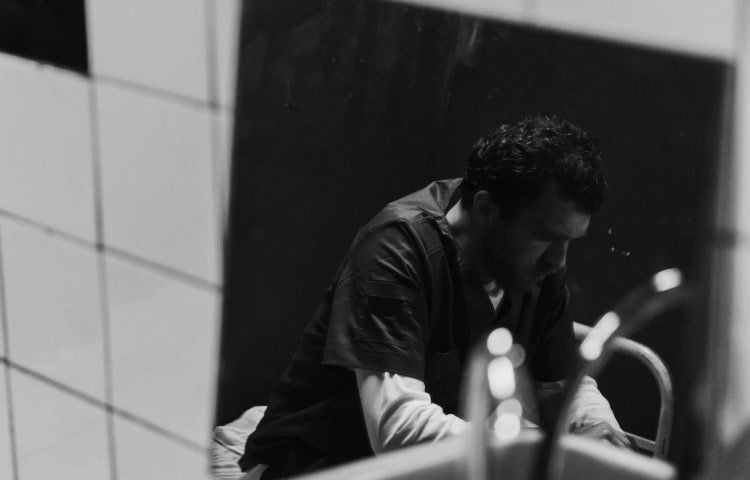
While Punitive Justice seeks to uphold the rule of law and maintain social order, it often overlooks the needs of survivors and fails to address the root causes of criminal behavior.
Critics argue that this approach can lead to overcrowded prisons, recidivism, and a lack of opportunities for offenders to rehabilitate and reintegrate into society.
Embracing Restorative Justice
The systemic and cultural shift we seek is rooted in the philosophy of Restorative Justice. Restorative Justice places the survivor at the center of the process and seeks to address the impact and harm of a crime and encourages accountability to repair the harm caused to survivors, families, and the community.
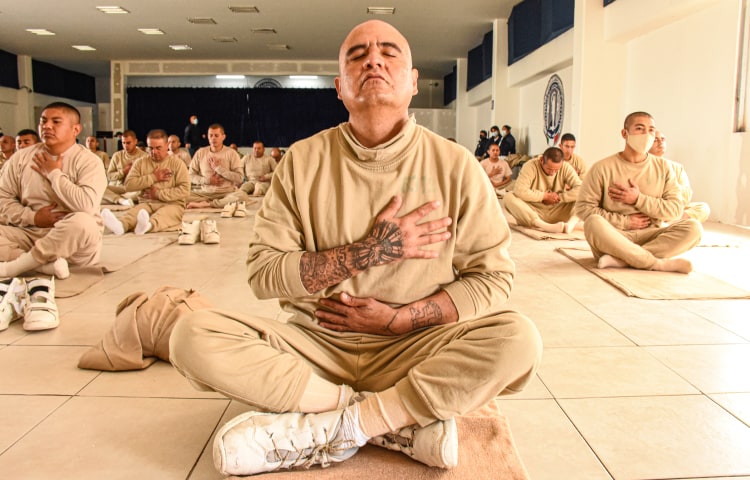
Restorative Justice emphasizes the following principles:
Healing
Focuses on the needs of survivors and communities to heal from the trauma of harm.
Accountability
Encourages those who caused harm to take responsibility for their actions and make amends.
Reintegration
Supports those who caused harm in making positive changes and reintegrating into society.
Collaboration
Involves all stakeholders in the justice process, including survivors, those who caused harm, and community members.
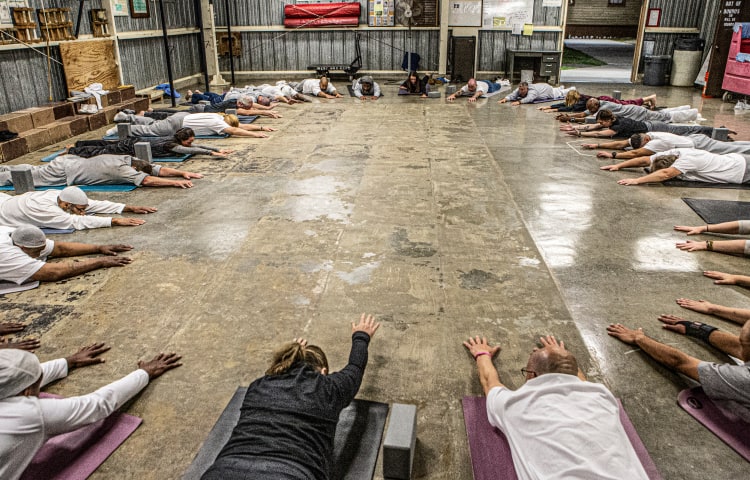
At Prison Yoga Project, we offer a Restorative Justice practice that focuses on recovery from trauma, development of resilience, and cultivation of empathy, compassion, and personal responsibility. Our evidence-supported, trauma-informed approach to yoga and mindfulness supports individuals in facing and releasing unresolved trauma safely and effectively.
Through our programs, we aim to build a supportive community that values personal growth, mutual respect, and collective healing. By fostering a sense of belonging and connection, we help individuals on their journey towards healing and transformation.
In Over 12 Countries Worldwide
We support system-impacted people worldwide, including in the U.S., Mexico, Canada, Costa Rica, Sweden, the Netherlands, the U.K., Portugal, France, Australia, and more.
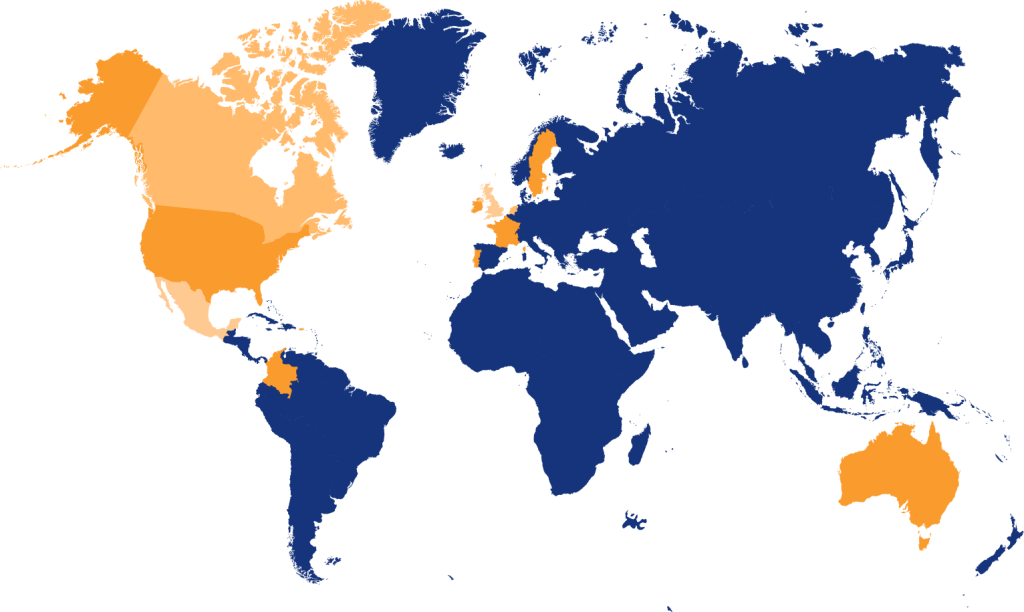
The People Who Make It Happen
We’re proud to work with a team of a diverse group of passionate individuals from around the world.

